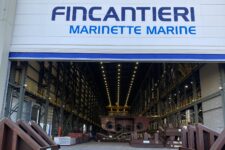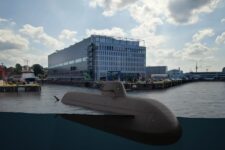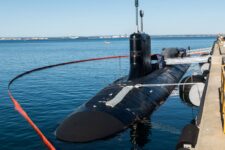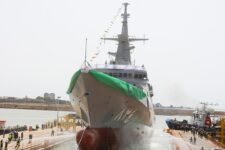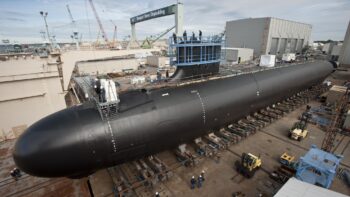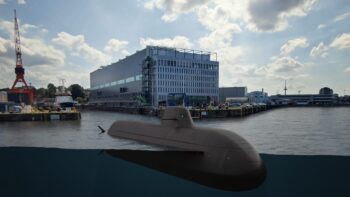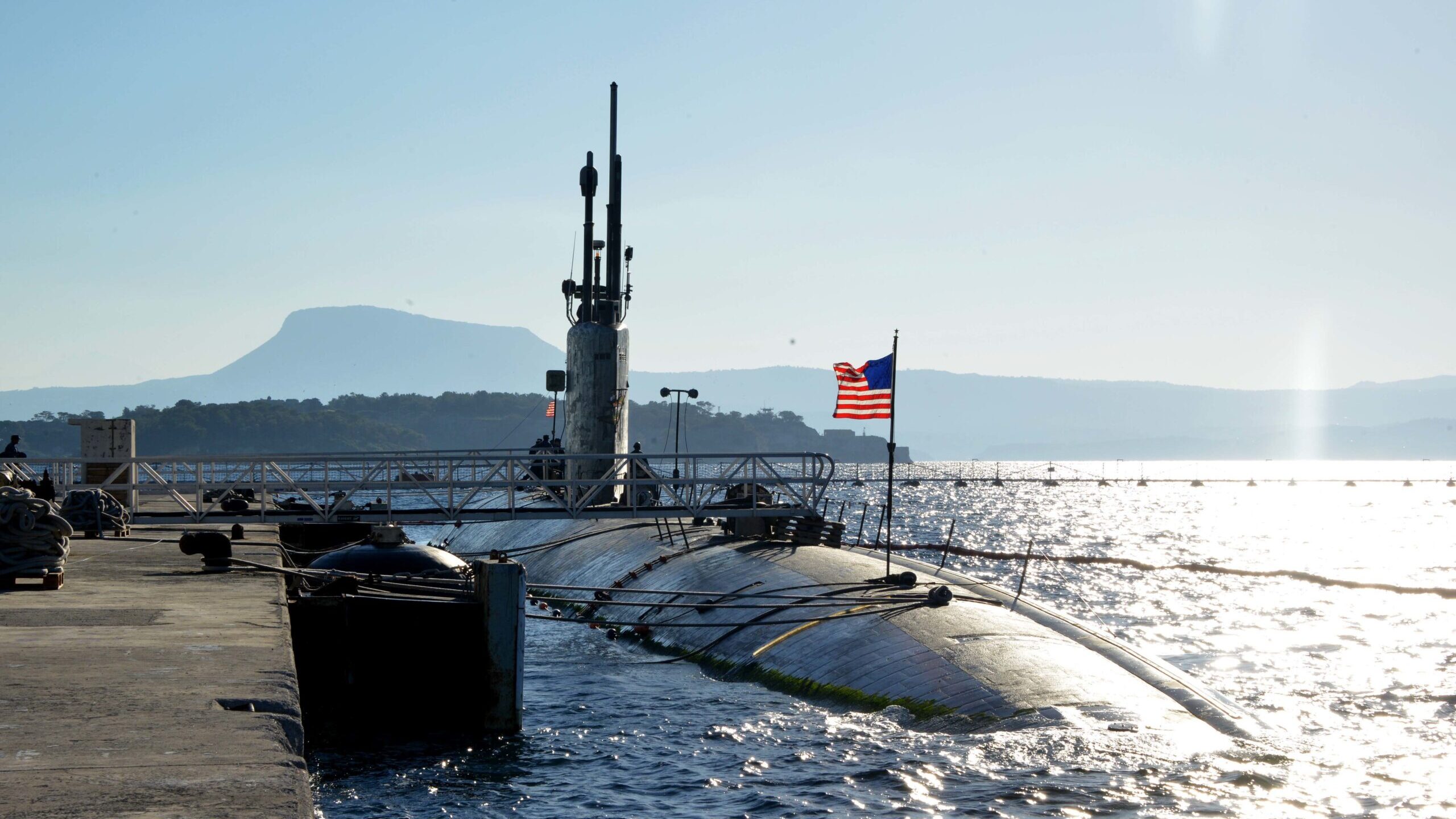
USS Boise (SSN 764) moors at Marathi NATO Pier Complex in Souda Bay, Greece, during a scheduled visit. (U.S. Navy photo by Mass Communication Specialist 2nd Class Jeffrey M. Richardson/Released)
UPDATE 5/12/2022 at 6:49 p.m. ET: This report has been updated to include a statement from HII. It was also updated to reflect the Navy came to a deal with HII to work on the Boise, not Electric Boat.
WASHINGTON: Chief of Naval Operations Adm. Michael Gilday had blunt words today for two powerhouse companies that build submarines for the Navy: We need your shipyards, but not the problems that come with them.
“We know that we don’t have the capacity in our public shipyards to handle all of that [submarine] maintenance. We need Electric Boat and we need Huntington Ingalls to be able to do that work,” said Gilday. “They are under performing. They are over cost and way over schedule.”
Gilday was testifying before the Senate Armed Services Committee about the Navy’s fiscal 2023 budget request alongside Navy Secretary Carlos Del Toro and Marine Corps Commandant Gen. David Berger. His comments were in response to a question from Sen. Mike Rounds, R-S.D., who sought the admiral’s opinions on how the Navy weighs the choice of scrapping a submarine against bringing it into maintenance on a very delayed schedule.
Read Breaking Defense’s deep dive story on the Navy’s public shipyards.
Todd Corillo, a Newport News Shipbuilding spokesman, in a statement to Breaking Defense, acknowledged the shipbuilder has “experienced challenges” since reconstituting its submarine repair business “following a 10-year hiatus.”
“In this time, we have built a proficient workforce, matured the supply chain, developed process improvements and made smart investments in required facilities,” he said. “Although we experienced challenges with our transition back into this complex business, we are now keeping pace with current submarine repair needs and also forecasting future workflow to drive predictable capacity and performance.”
Breaking Defense has sought comment from General Dynamics Electric Boat.
Rounds, who has pressed Navy brass on submarine maintenance frequently in previous hearings, brought up the Boise (SSN-764), a Los Angeles-class attack submarine that was scheduled for a maintenance overhaul in 2015 or 2016. The boat sat in port for several years waiting for space to become available at a public shipyard before the Navy finally reached a deal with HII to do the work.
Gilday told Rounds that the capabilities submarines bring are so critical to deterring and fighting a future conflict that scrapping one should only be a last resort. In the case of the Los Angeles fleet, Gilday noted, the service is planning engineering overhauls for seven boats that could result in them seeing four or five additional deployments before decommissioning.
Following those comments, Gilday laid into the shipbuilding giants.
“The challenge with Boise really rests inside the private shipyard that is doing that work. We have two private yards that do that work and we need their capacity,” Gilday said. “Because we need them, we need to hold their feet to the fire to those contracts. They need to pay penalties when they don’t meet their requirements.”
Publicly, the relationships between top Pentagon brass, such as Gilday, and the country’s biggest defense firms, like HII or GDEB, is relatively cordial. But, Gilday has previously shown he’s willing to put industry on the spot, as he did last year at a major Navy trade show, admonishing lobbyists who urge Congress to buy planes “we [Navy] don’t need.”
Coincidentally, in the same breath, he told that audience to spend more time worrying about completing Navy ship maintenance work on time.
Former Navy Secretary Richard Spencer publicly blasted HII in 2019 at a time when Capitol Hill was becoming increasingly irritated with the aircraft carrier Gerald R. Ford’s (CVN-78) delays and the Navy’s seemingly incessant stream of bad news about the ship’s status.


